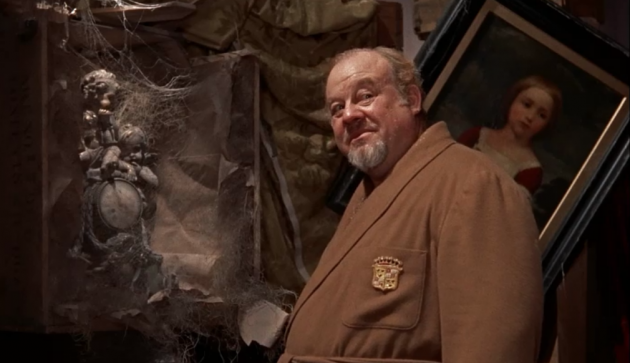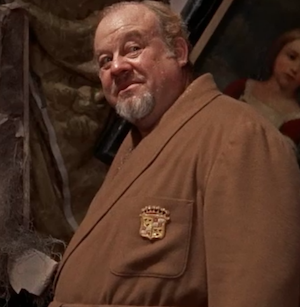A Lesson On Life and Money from Big Daddy Pollitt
In the film adaptation of the Tony winning Tennessee Williams play Cat on a Hot Tin Roof, Big Daddy Pollitt (Burl Ives), a very wealthy planation owner in Mississippi who built his fortune from nothing, learns he is dying from an inoperable cancer. There is a scene in which he is having a conversation with his alcoholic, repressed, guilt-ridden son, Brick Pollitt (Paul Newman), as he goes through his belongings in the basement, surrounded by the wealth and excess he is able to afford, wheezing in pain in an expensive cashmere robe.
In it, Big Daddy talks about a trip to Europe, which he hated, calling the place “one big fire sale” of old junk that his wife, Big Mama, had raided and had shipped back to the planation. There is an exchange that goes like this:

Adjusted for inflation, Big Daddy was probably worth between $100 and $200 million.
Big Daddy: Got any idea what I’m worth son? Ask Gooper; he knows. He knows to the penny unless I missed my guess. (Pause) Close on ten million dollars in cash and blue chip stocks … asides the 28,000 acres of the richest land this side of the Valley Knox.
Brick: (Indifferently, slowly) Well, that is pretty rich to be.
Big Daddy: (Resetting the hands on an old clock) There’s one thing you can’t buy in the Europe fire sale. Or any other market on Earth. That’s your life. Can’t buy back your life when it’s finished.
Life Is About Relationships, Not Just Money
I’ve told you over the years that your goal should not be to amass the largest net worth possible. Instead, you should strive to build the highest net worth possible consistent with the lifestyle you want to lead doing the things you love with your time. Money is a tool, no different than a screwdriver or a percolated coffee machine. The only proper function of money is the utility it can provide. Ultimately, life is about relationships and process; doing what you love with people about whom you care. That is one of the big themes in Letter to a Young College Student.
Your highest objective should be to be able to stand at the end of your journey, looking at the tapestry spread before you, and say, simply, “Well done.” If you can do that, you are a success. Your job is not to be popular with everyone or even to be respected. Your job is to be loved by the people that matter, have achieved the things you set out to achieve, and to have left the world a better place that you found it. But you only get one shot at it so make it count. Every moment that passes, you’re spending the time that was gifted to you in a trust fund. Once your account runs dry, that is it. You can’t buy back your life.
[mainbodyad]



